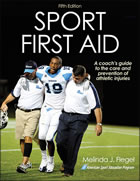EDITORIAL
Celebrating Winners and Losers

With the 2014 Winter Olympics now behind
us, I'm celebrating getting my regular sleep.
For years, I've enjoyed waking early and starting
the day with some type of physical activity.
Late night Olympics messed that up, but what
a sensational two-week diversion! Thankfully,
nothing more serious than a malfunctioning
Olympic ring briefly diverted media attention
from the performance of the 2850 athletes
from 88 countries. When it was all over Russia
won the most medals and 62 out of 88 countries
went home empty-handed. But honestly, who
really cares?
In an excellent essay (linked in our "News"
column), Emmy award-winning reporter Tom Foreman
reflects on the "grace and greatness of losing."
He points out that every one of those 2850
athletes succeeded in joining an extraordinarily
elite company. In relation to the world's population this made each athlete one in 2.5 million.
Foreman points out that almost all of these
athletes have likely toiled for years in anonymity
and most, for reasons beyond their personal
control, will never experience Olympic medal
greatness. But this of course misses the point.
It was the losing and the refusal to give
up that made them all so great and so deserving
of our enduring respect.
Master of Science
Online
Physical Education & Athletic Administration
Options
Central Washington University
Starting Summer 2014
Contact Dr. Kirk
Mathias for details
mathiask@cwu.edu
|
Thinking about this made me wish that all
children could enjoy the benefits of sports
regardless of competition outcomes. It reminded
me of the all-too-common elimination of enthusiastic
kids from sports that takes place in US public
schools nationwide. Deemed to be insufficiently skilled to participate, an estimated 750,000 youngsters are "cut" every year from publicly funded interscholastic sports. Sadly, these youngsters
are labeled losers before getting much of
a chance to begin, and never get to enjoy
the many benefits sports participation offers.
Not only is this public humiliation depressing
for young people in the most formative years
of their lives, how can it not impact their
lifetime physical activity habits? Little
wonder we have an obese society that includes
way too many legislators and school administrators
with little interest in supporting sports
or physical education.
Among other reports linked in our "News"
column you'll find stories of both success
and failure. Thankfully, our colleagues in
California managed to persuade legislators
to vote down a proposal to allow ROTC instructors
to teach physical education. But just one
state away, a New Mexico lawmaker is proposing
to allow marching band, cheerleading and ROTC
to count as a physical education class. And
in Ohio, a bill is pending to let school boards
allow athletics to excuse students from the
physical education requirement. This seemingly
never-ending stream of victories and defeats
always reminds me of the Jaws movie tagline,
"Just when you thought it was safe to go back
in the water..."
You can find much more about the latest events
in the world of physical education and sports
in the pelinks4u "News" column. Especially
interesting might be a couple of videos explaining
"physical literacy." As you may already know,
this phrase appears in our new National Physical
Education Standards. There are links to information
about this month's national AAHPERD Convention
in St. Louis, SPEAK Out Day, PEP funding,
and recognition of our colleagues who have
received AAHPERD awards this year. There's
also a link to the nation's physical-activity-cheerleader-in-chief,
Michelle Obama, hamming it up with Will Ferrell
as part of Lets Move advocacy. I vote we award
her "honorary" physical education teacher
status!
VOTE
NOW for the new SHAPE-America
(formerly AAHPERD) President Elect
and new Board Member.
|
This month, pelinks4u features nine
new and original articles. In celebration
of National Sportsmanship Month, Pete
Van Mullem shares podcasts he recorded
from the Bob Frederick Sport Leadership series.
Gerry Cernicky expresses
his concerns about declining sportsmanship
behaviors evident in today's sports, Christine
Lottes continues to share practical
tips for psychological skills training, and
athletic director Bill Utsey
describes a systematic way to assess school
athletic programs.
Writing about physical education, Lynn
Hefele urges teachers to adopt a
more cognitive approach to teaching, and Stu
Ryan has compiled 10 strategies to
reduce off-task behavior. Phoebe Constantinou
and Deborah Wuest share a
toolkit they have created for enhancing the
use of academic language in physical education,
and John Strong suggests
ways physical educators can integrate nutrition
instruction into the gymnasium. Finally, Jane
Wargo the PYFP Program Director describes
the five things that physical educators should
know about the Presidential Youth Fitness
Program.
If you're thinking "too much to read, and
too little time" I know how you feel. However,
not being able to do it all doesn't excuse
us from not doing anything. I encourage you
to pick through the information included in
our March pelinks4u issue with the
goal of simply learning something that you
didn't know before. And be sure to share some
of it with colleagues and on your Facebook
pages.
Help us to advocate for better physical education.
For those looking forward to going to the
St. Louis National Convention, I share your
excitement. It's always motivating to spend
time around professional colleagues. If you
recognize me and see me there please don't
hesitate to say "hi" and tell me what you
like or don't like about pelinks4u.
Have a great month, stay healthy, and travel
safely.
Steve
Jefferies, pelinks4u publisher
Excellent resource for our teen students
and it's free! -- Free
Online GED
|















